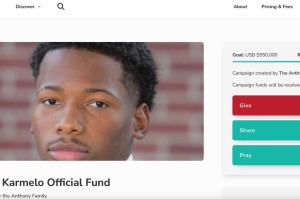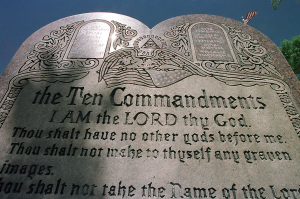Trump appointee rules against Christian school expelled from state voucher program

A federal judge has ruled against a private Christian school that was booted out of Maryland’s school voucher program for low-income students over the institution’s nondiscrimination policy.
U.S. District Court Judge Stephanie Gallagher sided with the state by denying a motion filed on behalf of Bethel Christian Academy in Savage asking the court to allow the school to continue participating in Maryland’s Broadening Options and Opportunities for Students Today program.
The academy, which aims to provide students with “authentic Christian learning” and a “biblical worldview,” was removed from the BOOST program after the 2017-2018 school year.
The school had accepted low-income students with BOOST program vouchers for two years before a state advisory committee reviewed the academy’s parent-student handbook that was updated in 2017.
The handbook outlined the school’s religious beliefs and practices and contained a statement on nondiscrimination in an “admissions policy” page. The statement explained that Bethel does not discriminate based on race, color, national and ethnic origin. The policy does not include the words “sexual orientation” or “gender identity.”
Additionally, the handbook also stated that the academy supports the biblical view of marriage “defined as a covenant between one man and one woman” and that “God immutably bestows gender upon each person at birth as male or female to reflect his image.”
“[F]aculty, staff, and student conduct is expected to align with this view,” the handbook stated.
The school maintains that it does not consider sexual orientation in its admissions process. But once admitted, school policies apply equally to all students regardless of their sexual orientation.
For the 2019-2020 school year, Bethel scrubbed the statement about the biblical view on marriage from its “student admissions” section.
According to The Baltimore Sun, Maryland officials argued that the school shouldn’t be eligible to receive BOOST funds since state law prohibits tax dollars from going to institutions that lack adequate discrimination policies, considering the handbook does not include “sexual orientation” and “gender identity” in its statement on discrimination.
Not only was Bethel Christian Academy removed from the BOOST program, but the state demanded the academy repay the money it was given for past BOOST students. The amount it’s being told to repay totals over $100,000, according to the school’s legal team at Alliance Defending Freedom.
However, Bethel Christian Academy contends that the state has violated its First Amendment rights of religious freedom and free speech.
The school sought a preliminary injunction in federal court, hoping it would be allowed to continue accepting BOOST students while the merits of the lawsuit are mitigated. But Judge Gallagher, who was nominated to the bench by President Donald Trump, contended that the school did not prove the basis of their case.
The judge reasoned that it wouldn’t be practical for Bethel to be temporarily allowed back in the program if it eventually loses the lawsuit.
“This request asks for the Court to nullify Defendants’ determination about Bethel’s eligibility from June 2018, to enjoin Defendants from enforcing any version of the legislation’s nondiscrimination requirement in the future, and to order Defendants to reinstate Bethel into BOOST,” the judge explained in her opinion.
“Courts have consistently noted that ‘mandatory’ injunctions are especially drastic remedies that are generally disfavored. ... Furthermore, the extraordinary nature of the preliminary injunction sought in this action is primarily a result of Bethel’s delay in seeking preliminary injunctive relief.”
Gallagher added that if Bethel had sought to enjoin enforcement of the nondiscrimination provision in 2017, a preliminary injunction “could have merely prevented Defendants from removing Bethel from BOOST.”
“Presently, preliminary injunctive relief would require this Court not only to circumvent the Advisory Board’s annual review process for BOOST applications, but also, by extension, to enjoin enforcement of the 2019 nondiscrimination provision (or some future version), which has never been applied to Bethel,” Gallagher noted.
To obtain the preliminary injunction, the judge wrote, the school bears the burden of proving that it will succeed on its claims that the state violated the free exercise and free speech clauses of the First Amendment.
“Bethel’s likelihood of success depends primarily on whether the Court would subject Defendants’ enforcement of the nondiscrimination provision to strict scrutiny,” Gallagher stated. “At this point in the proceedings, the Court does not have a justifiable evidentiary basis to apply strict scrutiny, and thus, Bethel has not demonstrated a likelihood of success.”
She stressed, however, that her ruling was not on the merits of Bethel’s claims and “in no way suggests that some or all of the Plaintiff’s claims] will not ultimately prevail in this case.”
The school is being represented by the Alliance Defending Freedom, a prominent legal group devoted to defending religious freedom rights.
ADF has won several Supreme Court cases in the past decade, including the successful defense of a Colorado Christian baker punished by the state for refusing to make a cake for a same-sex wedding.
“The government may not discriminate against religious schools simply because it dislikes their religious beliefs,” ADF Senior Counsel Ryan Tucker said in a statement. “Maryland’s families deserve better; that’s why we’re asking the court to stop the state from targeting and denying children scholarships simply based on the beliefs and policies set out in their school’s parent-student handbook.”
Last November, the U.S. Department of Justice submitted a statement of interest to the court in favor of Bethel Christian Academy.
“The government may not attempt to regulate religious beliefs, compel religious beliefs, or punish religious beliefs,” the DOJ argued. “It may not discriminate against individuals or religious organizations because of their religious beliefs or status, or for speaking on religious topics or sharing their religious beliefs.”
DOJ cited the 2017 case of Trinity Lutheran v. Comer.
“Like the church preschool in Trinity Lutheran, Bethel is ‘otherwise eligible’ and ‘fully qualified’ to participate in the BOOST program,” the DOJ stated. “It meets all of the program’s other eligibility requirements, and has represented to the Court that it does not, and will not, discriminate on the basis of sexual orientation or gender identity.”
Follow Samuel Smith on Twitter: @IamSamSmith
or Facebook: SamuelSmithCP



























